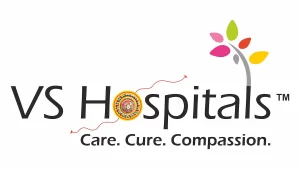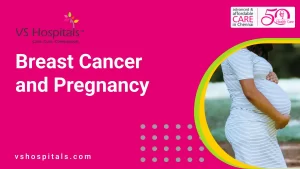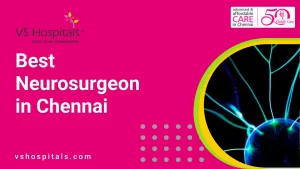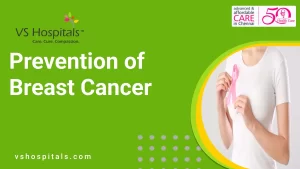VS Hospitals offers the rigorous and Best Chemotherapy in Chennai using cutting-edge equipment and drugs to destroy the cancer cells or side-effects in treating cancer during the early stages as the treatment can be highly effective.
- Chemotherapy is performed using drugs to stop and slow down the growth of cancer cells that grow and multiply more quickly than normal cells.
- The cancer cells can also cause damage to the existing healthy cells which can cause side effects in hair growth, lining your mouth and intestines.
- While surgery and radiation therapy target a specific region of the body, Chemotherapy is done to cover the whole body.
- It helps the doctor to detect exactly where the cancer cells are present and treatment can be given accordingly.
- Getting an advanced treatment works better to destroy the cancer cells in the initial or starting stage and can also be helpful in preventing the cancer cells from spreading to other parts of the body.
- The chemotherapy in Chennai usually takes a 2 to 4-week gap between two chemotherapy sessions. This break allows the replacement of the damaged healthy cells.
- The duration or the number of sessions of Chemotherapy in Chennai depends on the individual’s health condition. Some people require one dose, while others may need it multiple times.
- It also helps in controlling the cancer cells from spreading by slowing their growth or destroying the cancer cells that have spread to other parts of your body.
- Moreover, it also shrinks the tumors which can cause pain, and pressure helps to prolong life, and improve symptoms in patients who cannot be cured. This is known as palliative chemotherapy.
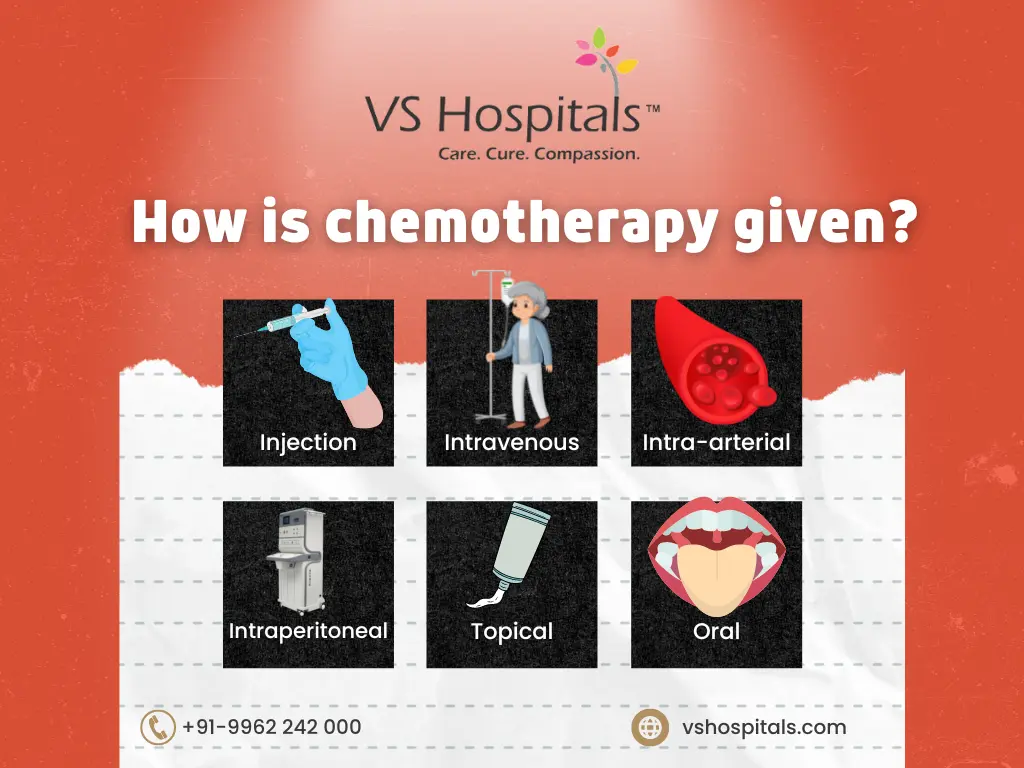
Signs and Symptoms of Chemotherapy in Chennai
- Fatigue
- Nausea
- Vomiting
- Anaemia
- Decrease in blood cell counts
- Hair loss
- Flaky nails and dry skin
- Mouth sores
- Pain
- Weakened immune system
- Loss of appetite
- Easy bruising
- Bleeding problems
- Cognitive issues
- Affects fetal development
Risk Factors
- Increasing age
- Malnutrition
- Low haemoglobin
- Frailty
- Personal or family history of cancer
- Inherited genes increase cancer risk
- Radiation exposure
- Drinking alcohol
- Smoking
Signs Chemotherapy is Working: Understanding the Positive Progress
Chemotherapy in Chennai is a powerful cancer treatment that targets rapidly dividing cells, including cancer cells. While its effects vary for each individual, certain signs indicate that chemotherapy is working positively:
- Tumor Size Reduction: Successful chemotherapy often leads to a decrease in tumor size or even its complete disappearance.
- Improved Symptoms: Reduction in cancer-related symptoms, such as pain, fatigue, and difficulty breathing, signifies positive progress.
- Normalization of Tumor Markers: Blood tests measuring specific tumor markers can indicate the effectiveness of chemotherapy.
- Positive Imaging Results: Radiological scans, like CT scans or MRIs, may show a decrease in cancer activity or tumor shrinkage.
- Regression of Metastases: Chemotherapy’s impact on cancer that has spread to other parts of the body can indicate successful treatment.
Monitoring these signs, along with regular medical assessments and communication with oncologists, ensures a comprehensive understanding of chemotherapy’s efficacy. For individuals seeking chemotherapy in Chennai, consulting with experienced oncologists provides personalized guidance and support throughout the treatment journey.
Diet and Nutrition
- Intake of more protein-based foods like beans, lentils, and soy along with animal proteins like chicken, fish, eggs, and seafood after chemotherapy in Chennai.
- Choose a variety of colorful fruits and vegetables and consult with your doctor about what to consume and what not to consume.
- Make sure to have low-fat dairy products and alternatives like milk, cheese, cottage cheese, kefir, and yogurt.
- Eat more whole grains and starchy vegetables like quinoa, oats, barley, brown rice, peas, winter squash, whole wheat bread, corn, cereals, and pasta.
- After chemotherapy in Chennai, have avocado, nuts, and seeds, and also include beverages in your diet by taking them in a proper proportion.
- Avoid sugar-sweetened foods, white refined carbohydrates, trans fat, red and processed meat, alcohol, etc.
Prevention
- Get regular medical care from an expert specialist regarding the type of cancer and how to overcome it after screening.
- Exercise daily.
- Eat a healthy diet.
- Maintain a healthy physique.
- Avoid consuming alcohol.
- Avoid tobacco products.
- Avoid risky behaviors after chemotherapy in Chennai.
Diagnosis
- CT Scan
- PET Scan
- Biopsy Test
- MRI
- Mammography
- Ultrasound
- Nuclear Medicine
Key Services
- Surgeries
- Radiation therapies
- Chemotherapy
- Immunotherapies
- Targeted therapies
Key Facilities
- Rapid access to treatment for effective results after chemotherapy in Chennai.
- Personalized treatment with an expert team of radiation oncologists, therapists, and medical staff.
- Cutting-edge operation theatres are equipped to perform all the major and minor chemotherapy procedures.
- Full-fledged surgical intensive care unit to handle emergencies as well as post-operative patients.
- Administration of Chemotherapy by a medical team equipped with talented doctors, trained nurses, and technicians.
- Specialized day care unit for short-duration surgical procedures and chemotherapies.
- Diagnostic radiology services include CT scans, mammograms, Ultrasound scans, and guided procedures.
Types of Cancer Therapy
Immunotherapy
Immunotherapy activates the body’s immune cells to fight against cancer cells, enhancing the body’s natural defense mechanisms. It is a personalized treatment using the patient’s own cells or lab-developed treatments to boost or restore immune function. Methods include drugs and cancer vaccines tailored to the specific cancer condition.
Advantages of Immunotherapy
- Utilizes the body’s own immune system
- Personalized treatment plans
- Often fewer side effects compared to traditional treatments
Drug Therapy
Drug therapy involves injecting anticancer antibodies to unblock the immune system and activate a cancer-specific immune response.
Benefits
- Enhances other treatments like chemotherapy
- Effective when other treatments such as radiation or chemotherapy fail
- Fewer side effects
Targeted Therapy
Targeted therapy uses drugs to stop cancer from growing and spreading by targeting specific genes or proteins unique to cancer cells.
Advantages of Targeted Therapy
- Inhibits the multiplication of cancer cells.
- Limits the lifespan of cancer cells.
- Minimal impact on nearby normal cells, leading to fewer side effects
- High effectiveness due to specificity
Hormone Therapy
Hormone therapy blocks or reduces hormones that help certain cancers grow. It’s used for hormone-sensitive cancers like breast, ovarian, uterine, and prostate cancer.
Benefits of Hormone Therapy:
- Reduces the size of cancer before surgery
- Prevents cancer recurrence
- Destroys returning or spreading cancer cells
Chemotherapy
Chemotherapy uses drugs to destroy cancer cells by stopping or slowing their growth. It is versatile and can be used at different stages of cancer treatment.
Types of Chemotherapy in Chennai
- Neoadjuvant: Given before surgery or radiotherapy
- Adjuvant: Given after surgery or radiotherapy
- Palliative: Used in advanced stages to improve quality of life
Methods of Chemotherapy
- Infusions: Delivered intravenously
- Oral Chemotherapy: Pills or capsules
- Injections: Given as shots
- Topical Chemotherapy: Creams or gels for skin cancer
- Localized Chemotherapy: Delivered directly to specific areas (e.g., abdomen, chest cavity, central nervous system)
Advantages of Chemotherapy
- Shrinks tumors, potentially making surgery feasible
- Helps prevent cancer recurrence by eliminating residual microscopic cancer cells
- Can treat recurrent or metastatic cancer effectively
- Offers a standalone treatment option for certain blood cancers
For comprehensive cancer treatment, consider chemotherapy in Chennai for advanced care and innovative therapies tailored to individual needs.
Preparing for Chemotherapy
Getting ready for chemotherapy treatment in Chennai involves taking steps to ensure your body and mind are prepared for the process.
- Health Assessment: Complete a comprehensive medical evaluation to determine your readiness for chemotherapy.
- Dietary Planning: Work with a nutritionist to develop a diet plan that will support your health during treatment.
- Medication Management: Review all current medications with your doctor, as some may interfere with chemotherapy.
- Support Network: Organize a support system to assist with daily activities and provide emotional support throughout your treatment.
After-Treatment Care
Proper care after chemotherapy is crucial to aid recovery and manage any side effects.
- Regular Monitoring: Schedule follow-up visits with your oncologist to monitor your response to treatment and manage any side effects.
- Managing Symptoms: Be proactive in addressing common side effects like fatigue or nausea by consulting your healthcare team for appropriate solutions.
- Nutrition and Hydration: Continue to follow a balanced diet and stay hydrated to help your body recover and mitigate side effects.
- Emotional and Psychological Support: Seek counseling or join support groups to help navigate the emotional challenges of cancer treatment.
Factors Affecting the Cost of Chemotherapy
Several elements influence the chemotherapy cost in Chennai, making it essential to understand these factors when planning your treatment.
- Type of Cancer and Treatment: The nature of your cancer and the specific chemotherapy drugs used can significantly impact the chemotherapy treatment cost in Chennai.
- Choice of Hospital: Receiving treatment at a specialized hospital or in a prime location often leads to higher costs.
- Duration and Frequency: The overall chemotherapy treatment cost in Chennai can increase with longer or more frequent sessions.
- Additional Care: Expenses for supportive treatments, such as medications to manage side effects, can contribute to the overall chemotherapy cost in Chennai.
By understanding these aspects, patients and families can make informed decisions regarding chemotherapy treatment in Chennai and better manage the financial aspects of care.
Support for Patients and Families
Patients and families grappling with the challenges of chemotherapy can access a range of support services. Medical teams are dedicated to providing information, answering questions, and offering emotional support throughout the treatment journey.
Support groups, whether in-person or online, connect individuals facing similar experiences, fostering understanding and encouragement. Counseling services, including access to psychologists or social workers, address emotional well-being and offer coping strategies. For comprehensive chemotherapy services and support, consider reputable facilities offering chemotherapy in Chennai, where patients receive holistic care tailored to their needs.
Conclusion
Chemotherapy in Chennai, like elsewhere, remains a cornerstone in the treatment of various cancers. While it comes with challenges such as side effects, its ability to target rapidly dividing cancer cells has saved countless lives. Ongoing research aims to refine and personalize chemotherapy regimens, improving efficacy and minimizing adverse effects. As part of comprehensive cancer care, chemotherapy continues to contribute significantly to the ongoing battle against this complex and diverse group of diseases.
Read also, Gastroenterologist Specialist in Chennai.

